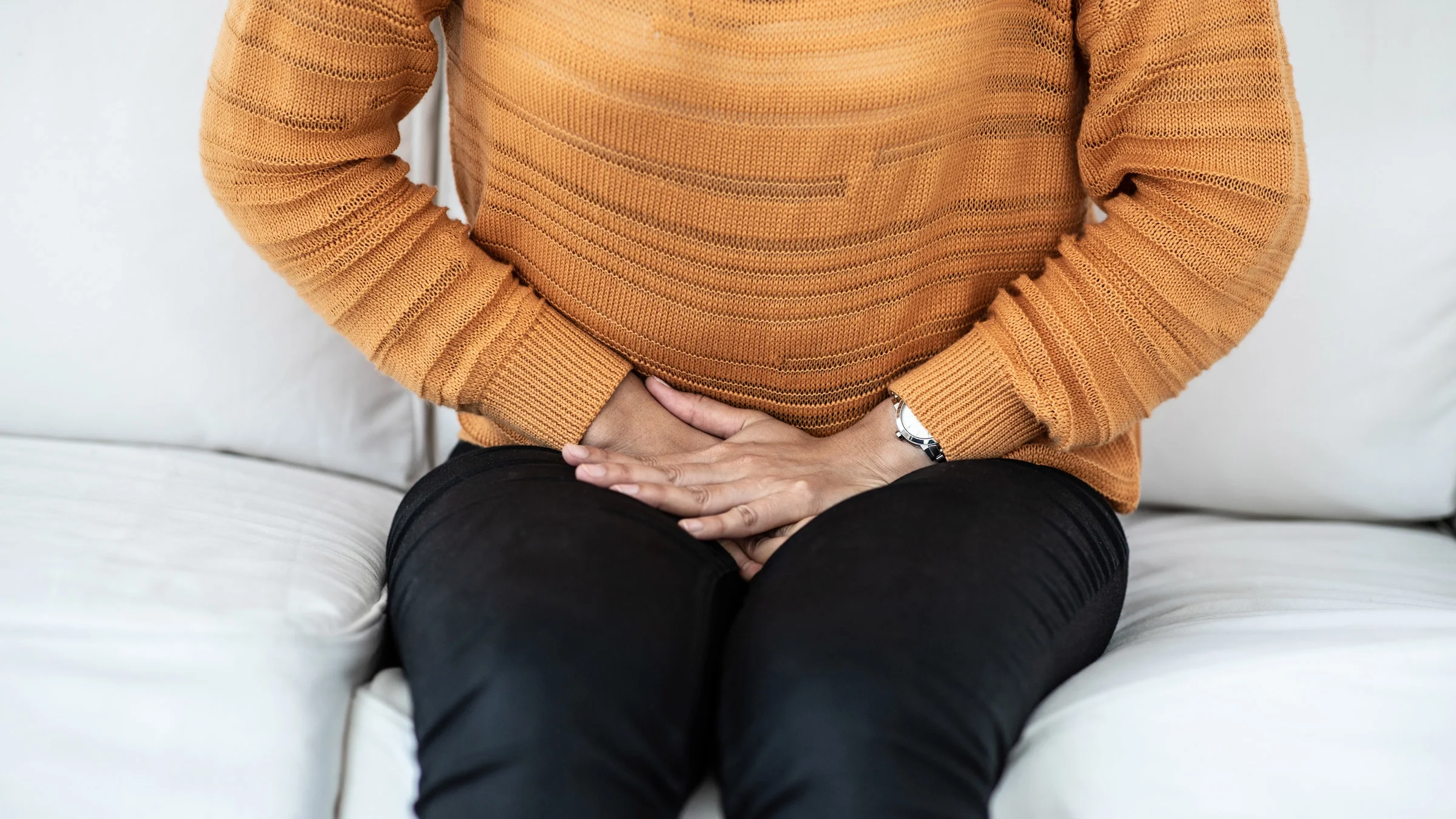Key takeaways:
Irritable bowel syndrome (IBS) is a common cause of abdominal pain, bloating, and diarrhea in adults.
The brain and the digestive tract communicate with each other. This is sometimes called the gut-brain axis.
IBS and anxiety disorders often affect the same people. But it is not clear exactly how the two are related, or if one causes the other.
Save on related medications
It is common for anxiety and digestive problems to go hand in hand. You may have noticed that during stressful times you are more likely to suffer from constipation or diarrhea. But can anxiety really cause stomach pain? Or do problems in the digestive tract affect the mind?
In this article, we’ll discuss the mind-gut relationship. And we’ll see how anxiety is related to irritable bowel syndrome (IBS), a common problem that causes abnormal bowel movements.
What is IBS?
IBS is a functional disorder of the digestive tract. This means that, unlike diseases like Crohn’s disease or ulcerative colitis, there are not always changes in the physical structure of the digestive tract. In people with IBS, blood and stool testing, imaging, and even colonoscopy results may be normal. The diagnosis of IBS is usually made based on symptoms, after other conditions get ruled out.
Symptoms of IBS can vary. But in general, IBS symptoms include:
Gas
Bloating
Diarrhea
Constipation
Abdominal pain
IBS is fairly common: About 10% to 15% of people in the U.S. have IBS. While the symptoms of IBS can be very disruptive, the condition is not dangerous and there are treatment options.
What is an anxiety disorder?
Everyone experiences stress and worry. But if the worries are persistent, severe, or interfere with your normal life, it may be a sign of an anxiety disorder. People with anxiety disorders can also have physical symptoms like a fast heart rate, fatigue, and sweating. About one-third of U.S. adults will be affected by an anxiety disorder at some point in their lives. Common anxiety disorders include:
Anxiety and IBS: How are they related?
Studies have shown that mood disorders, like anxiety and depression, are more common in people with IBS. In one study, 44% of people with IBS had an anxiety disorder compared to only 8% of people without IBS.
Read more like this
Explore these related articles, suggested for readers like you.
This may be because the mind and the gut are intertwined in what scientists call the gut-brain axis. This is a two-way signaling system between your brain and your digestive tract.
Here’s how the gut-brain axis works:
In the gut-brain axis, our thoughts, feelings, and environment lead to a release of chemicals.
The theory is that when you feel anxious, your body releases stress-related chemicals to your gut.
This can cause abdominal pain, a change in your gut bacteria, and abnormal bowel movements.
In the other direction, a poorly functioning gut has been linked to mental health changes. This may be because the brain uses chemicals and hormones that are made by the bacteria in our gut.
Serotonin is an important chemical that plays a role in our mood and a lot of it is made in the gut.
So, when our brains feel stress and anxiety, they can cause our bowel habits to change. And when our gut is unhealthy, it can affect hormones that cause us to feel stress and anxiety.
Is IBS caused by anxiety?
We know that IBS and anxiety often coexist. But it’s not clear how they are related. Studies have shown evidence supporting two ideas. The first is that anxiety leads to problems with digestion. The second suggests that problems in the gut can cause anxiety.
But keep in mind that there are many people with anxiety who don’t have IBS — and vice versa.
So, while anxiety and IBS are often related, experts can’t say exactly how yet.
Can anxiety cause constipation or stomach pain?
Stress and anxiety can cause physical symptoms throughout the body. In the gastrointestinal system, increased stress can cause abdominal pain, diarrhea, and constipation. This can happen even in people who do not have IBS. Studies have shown that people with anxiety and depression are more likely to have episodes of abdominal pain or digestive problems.
What does stomach pain caused by anxiety feel like?
Stomach pain caused by anxiety, or by a functional digestive problem like IBS, can be hard to distinguish from other causes of abdominal pain. But stomach pain due to IBS often occurs after eating trigger foods or during a stressful event. And it usually improves after going to the bathroom. Signs that your abdominal pain may be due to something other than IBS or anxiety are:
Rectal bleeding
Unintentional weight loss
Onset over age 50
Family history of bowel or ovarian cancer
Iron-deficiency anemia
Abdominal pain that wakes you up at night
What are risk factors for IBS?
Anxiety and depression may increase your risk for IBS. Other risk factors for IBS include:
Having a relative who has IBS
Being younger than 50 years of age
Experiencing chronic psychological stress
Smoking
Changes in your gut bacteria, due to infection or certain medications
What can I do about IBS?
There isn’t a cure for IBS, but the symptoms can be managed. If you haven’t already done so, you’ll want to make an appointment with your healthcare provider. They’ll check if your symptoms are due to other health conditions. If it’s really IBS, they’ll work with you to improve your symptoms over time. Managing IBS usually requires a combination of diet and lifestyle changes, as well as medications.
Diet and lifestyle changes
In treating IBS, providers usually start with your diet. It’s a smart idea to keep a diary of what you eat and how it affects your bowel movements. This can be especially helpful to your provider as they discuss treatment recommendations with you.
Generally, research shows that avoiding the following might help prevent symptoms of IBS:
Gas-producing foods: Examples of gas-producing foods are beans, bananas, and brussels sprouts.
Dairy products: Some dairy foods to avoid are milk, yogurt, and cheese.
Foods high in FODMAPs: FODMAPS — or fermentable oligosaccharides, disaccharides, monosaccharides, and polyols — include fructose and sorbitol, which appear in many fruits, some vegetables, and wheat.
If you experience constipation, you’ll want to drink lots of water and eat small meals. A high-fiber diet or adding soluble fiber may also help.
Also, remember that alcohol, tobacco, and caffeine can make symptoms of both IBS and anxiety worse.
Medications
If diet and lifestyle changes don’t work, there are also many medication options to help relieve symptoms. Always talk to your provider first before trying any new medications.
For IBS-related constipation, you might be asked to try:
Soluble fibers like psyllium (Metamucil)
Laxatives like Miralax
IBS medications like lubiprostone (Amitiza), Linzess, or Zelnorm (only for females below age 65)
For IBS-related diarrhea, you might be asked to try:
For IBS-related abdominal pain:
Anti-spasm medications like dicyclomine (Bentyl) and hyoscyamine (Levsin)
Selective serotonin reuptake inhibitors (SSRIs) like sertraline (Zoloft) and fluoxetine (Prozac)
Tricyclic antidepressants (TCA) like amitriptyline (Elavil), doxepin (Sinequan), and nortriptyline (Pamelor)
How can I manage my anxiety to prevent stomach pains and IBS flare ups?
If you suffer from anxiety and IBS, treating your anxiety may help improve your IBS symptoms. Some therapies used to treat anxiety disorders have also been been studied in IBS:
Cognitive behavioral therapy (CBT): CBT is a type of psychotherapy often used to help treat anxiety, depression, and other mental health conditions. But studies have shown that it can help reduce symptoms of IBS as well.
Antidepressant medications: SSRIs are often prescribed to people with anxiety disorders. But research has shown that these medications can also be helpful for some people with IBS.
Exercise: Regular exercise — 20 to 60 minutes of vigorous exercise 3 to 5 times a week — can improve symptoms of both anxiety and IBS.
The bottom line
There is a clear link between anxiety and IBS. But it’s unclear if anxiety causes IBS or vice versa. That’s because both conditions are the result of many different factors. If you do have both anxiety and IBS, you are not alone. Luckily, there are many treatment options and lifestyle changes that can help relieve symptoms. Be sure to discuss some of these options with your healthcare provider.

Why trust our experts?



References
American Psychological Association. (2023). Stress effects on the body.
Aylett, E., et al. (2018). Exercise in the treatment of clinical anxiety in general practice — A systematic review and meta-analysis. BMC Health Services Research.
Bandelow, B. (2015). Epidemiology of anxiety disorders in the 21st century. Dialogues in Clinical Neuroscience.
Banerjee, A., et al. (2017). Anxiety and depression in irritable bowel syndrome. Indian Journal of Psychological Medicine.
Creed, F. (2006). How do SSRIs help patients with irritable bowel syndrome?. Gut.
Everitt, H. A., et al. (2019). Cognitive behavioral therapy for irritable bowel syndrome: 24-month follow-up of participants in the ACTIB randomised trial. The Lancet Gastroenterology & Hepatology.
Holtmann, G., et al. (2018). Pathophysiology of functional gastrointestinal disorders: A holistic overview. Digestive Diseases.
Huebner, E. (2022). Irritable bowel syndrome. American College of Gastroenterology.
IBS Network. (2017). IBS: Diagnosis, treatment and management.
International Foundation for Gastrointestinal Disorders. (n.d.). Functional GI disorders.
Johannesson, E., et al. (2011). Physical activity improves symptoms in irritable bowel syndrome: A randomized controlled trial. American Journal of Gastroenterology.
Kennedy, J. K., et al. (2014). Irritable bowel syndrome: A microbiome-gut-brain axis disorder?. World Journal of Gastroenterology.
Lee, H. S. (2022). Irritable bowel syndrome or psychiatric disorders: Which comes first?. Journal of Neurogastroenterology and Motility.
Menees, S., et al. (2018). The gut microbiome and irritable bowel syndrome. F1000 Research.
Nam, S. Y., et al. (2010). Prevalence and risk factors of irritable bowel syndrome in healthy screenee undergoing colonoscopy and laboratory tests. Journal of Neurogastroenterology and Motility.
National Institute of Diabetes and Digestive and Kidney Diseases. (2017). Diagnosis of irritable bowel syndrome.
Saito, Y. A., et al. (2010). Familial aggregation of irritable bowel syndrome: A family case-control study. American Journal of Gastroenterology.
Walter, S. A., et al. (2013). Abdominal pain is associated with anxiety and depression scores in a sample of the general adult population with no signs of organic gastrointestinal disease. Neurogastroenterology & Motility.
Yano, J. M., et al. (2015). Indigenous bacteria from the gut microbiota regulate host serotonin biosynthesis. Cell.


















